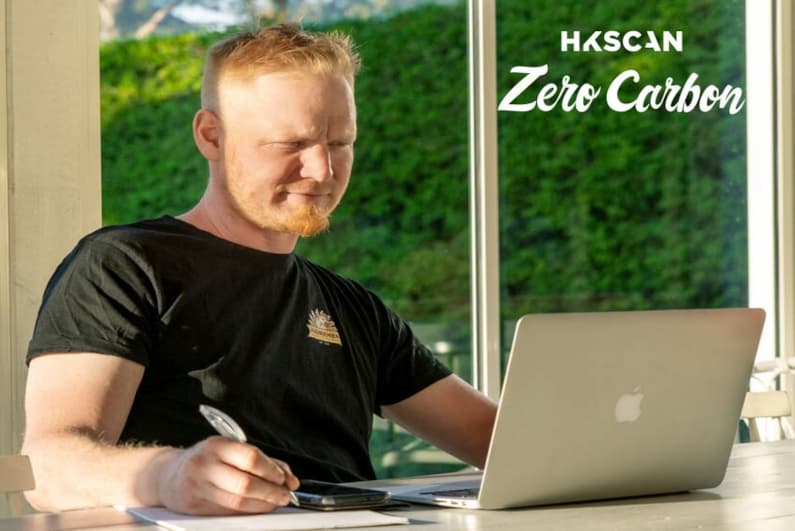Climate training for our contract farmers is part of HKScan’s Zero Carbon climate plan. We aim for carbon-neutral food production.
The first part of the virtual climate training will focus, e.g. on what we have learnt on the Agrofood Ecosystem® pilot farms, what the carbon footprint on pig, broiler and cattle farms consists of and how to reduce the carbon footprint of the farm. In addition, we will have aid policy and the environmental impacts of primary production in a broader perspective on the agenda. Ulf Jahnsson (HKScan), Kari Valonen (Ministry of Agriculture and Forestry), Senja Arffman (Envitecpolis) and Katri Behm (VTT) are interviewed in the first training.
Corporate responsibility, an increasingly closer part of contract farming
HKScan’s contract farms have already long worked to reduce climate impacts.
“In line with the Zero Carbon climate plan introduced at the beginning of January, we will further reduce the carbon footprint of agriculture together with our contract farmers. In our activities, we will focus on the promotion of resource efficiency and carbon binding in the field farming. With the climate training, we provide tools for this development,” says Veli-Matti Jäppilä, SVP, Animal Sourcing and Producer Services at HKScan.
“Climate training is part of the development phase of contract farming, where responsibility work is increasingly integrated into the contract farming. In the training, we will provide our contract farmers with the latest information in the field together with our partners. At the same time, we will collect feedback from our contract farmers on farm-level climate and responsibility issues. Through co-operation, we will make our contract farmers climate heroes,” says Ulf Jansson HKScan’s VP, Strategic development primary production.
Training themes cover carbon farming, carbon footprint, eutrophication, biodiversity, water footprint and animal welfare. In Sweden, the farmers’ climate training will begin in the autumn 2021.

